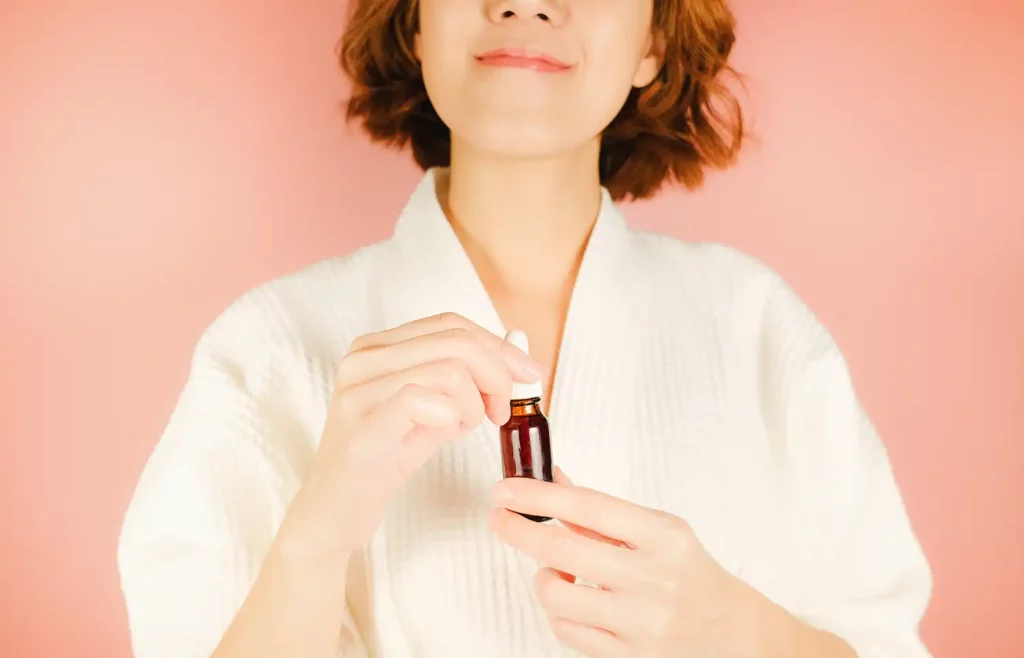If you’re searching for a natural way to boost your mood and energy levels, read on to discover the best uplifting essential oils to use. They can improve your mood when you feel stressed, anxious, or have low energy levels. These powerful plant extracts have been used for centuries to improve mental well-being and promote a sense of happiness and positivity.
The Ancient Art of Aromatherapy
Aromatherapy is an ancient practice that dates back thousands of years. It is the use of essential oils and plant extracts to promote physical and emotional well-being. The art of aromatherapy is believed to have originated in ancient civilisations such as Egypt, China, and India.
Historical Use Of Essential Oils In Cultures
In ancient Egypt, essential oils collected from aromatic plants were widely used for medicinal purposes and embalming the dead. They were an integral part of all religious ceremonies and rituals. Egyptians understood that essential aromatic oils had spiritual and healing properties using them to connect with their gods and promote healing within the body.
In ancient China, aromatherapy was used as part of traditional medicine. Essential oils were used to balance and harmonise the Qi energy force of the body. Aromatherapy was also used with traditional healing methods on a very practical level to treat digestive problems, respiratory issues, and various skin conditions.
In India, the practice of aromatherapy was included in the ancient healing system called Ayurveda. Ayurveda still uses essential oils to balance the body’s doshas or energy types. Each essential aromatic oil has specific properties that can bring balance to a person’s dosha. Aromatherapy is currently used in traditional Indian medicine to encourage relaxation, reduce stress, and improve overall well-being.
Modern Science Meets Ancient Remedies
Aromatherapy has been practised for centuries, but French chemist Rene-Maurice Gattefosse coined the word in the 1930s. Today, aromatherapy is widely used for both its physical and psychological benefits. Essential oils are extracted from various parts of plants, such as flowers, leaves, bark, and roots. These oils are then used in multiple ways, such as through inhalation, massage, or added to topical products like gels, creams and lotions.
Each essential oil has a unique terpene profile, giving it specific properties and benefits. For example, Lavender oil is known for its calming and relaxing effects, while Peppermint oil is invigorating and can help with digestion. Several essential oils have antimicrobial properties and can be used to support the immune system.
Aromatherapy is recognised as a complementary therapy with a more holistic approach to health than current medicine. The oils can affect the mind and body, trigger certain emotions and memories, and balance your nervous system.
The Science Behind The Scent
How The Olfactory System Influences Mood
The olfactory system, which is responsible for our sense of smell, plays a significant role in influencing our mood. Certain scents can evoke powerful emotional responses and trigger memories, affecting our well-being. Inhaling fragrances stimulates the olfactory receptors in the nose, which send signals to the brain’s limbic system. The limbic system is closely linked to emotions, memory, and behaviour. As a result, certain smells can directly impact our emotions and mood states.
The Brain-Essential Oil Connection
A growing body of research suggests that certain essential oils may positively affect brain wellness. These aromatic compounds, derived from plants, are increasingly understood to interact with the brain through various mechanisms.
For example, Lavender essential oil has been shown to have a calming effect and may help reduce feelings of anxiety and stress. On the other hand, Rosemary essential oil has been found to enhance cognitive performance, concentration, and memory. Others like Lemon essential oil, Peppermint essential oil, and Frankincense oil have also been studied for their potential brain-boosting properties.

Top Uplifting Essential Oils For Mood Elevation
Lavender: The Queen Of Relaxation
Lavender is often called the queen of relaxation for its extraordinary ability to ease tension and promote relaxation. Known for its calming properties, Lavender is commonly used to combat stress, anxiety, and insomnia. The delicate floral scent has been shown to increase alpha and theta brain waves, promoting calmness and reducing emotional distress.
Benefits and Properties
Lavender essential oil is widely known for its numerous benefits and properties. It has a calming and soothing effect on the mind and body, making it a popular choice for those seeking relaxation and stress relief. The oil is often used in aromatherapy to promote better sleep and reduce anxiety. Lavender oil also has anti-inflammatory and antiseptic properties, making it helpful in treating a variety of skin conditions, such as acne, eczema, and minor burns. It can help soothe irritated skin and promote healing.
How To Use Lavender For Maximum Effect
- To relax and sleep better, put a few drops of lavender oil in a diffuser or mix it with a carrier oil like Coconut or Olive oil. You can apply it to your temples or wrists before going to bed. This can also help alleviate anxiety and stress. You can also add the diluted essential oil to a warm bath to promote relaxation and relieve muscle tension.
- You can make a simple massage oil by blending Lavender essential oil with other essential oils you like into some Sweet Almond oil. Don’t wait until you have a massage, though. Use it anywhere on your body that you can comfortably reach. This way, you get the best essential oils in a form that you can use daily. It could be on your legs or arms. It all counts and is worth doing as part of a self-care routine.
Citrus Oils: A Burst Of Sunshine
Citrus essential oils are often described as a burst of sunshine due to their vibrant, uplifting, and mood-enhancing properties. Citrus fruit oils come from the peels of fruits like Oranges, Lemons, and Grapefruits. They have a fresh and energising scent that instantly makes the air feel brighter.
The aroma of citrus essential oils is known to promote feelings of happiness, energy, and positivity. Just like the sun’s rays can uplift our spirits, the scent of citrus oils can similarly affect our mood and emotions. Inhaling these oils can help improve focus, increase motivation, boost energy levels, and reduce stress and anxiety.
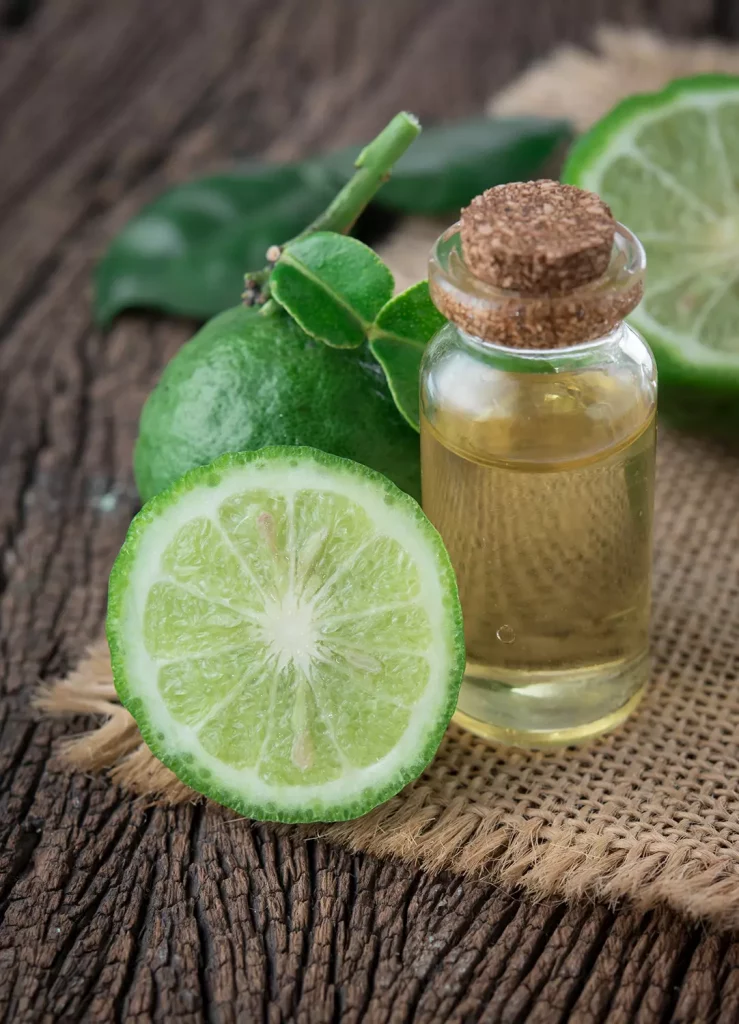
Spotlight On Lemon, Orange, and Grapefruit Oils
- Lemon oil is known for its fresh and uplifting scent, often used in aromatherapy to uplift the mood and promote mental clarity. It is also commonly used as a household cleaner due to its natural antibacterial properties.
- On the other hand, orange oil has a sweet and fruity aroma, often used in perfumes and skincare products. It is also popular for aromatherapy as it reduces anxiety and promotes relaxation. Blood Orange oil has an even stronger aroma when you smell it.
- Grapefruit oil has a refreshing and tangy scent widely used in aromatherapy to combat fatigue and improve mood. It is also known for its detoxifying properties and is often used in skincare products to promote clear and healthy-looking skin. However, this oil has a short shelf life, so buying small amounts more frequently from a reputable supplier is best. When making your own skincare products, Grapefruit can be difficult to be noticed. The cream emulsion tends to hold the fragrance and not release it. This is even more noticeable in shampoos.
The Uplifting Effects of Citrus on the Psyche
The zesty scent of Lemon, Orange, and Grapefruit can instantly boost mood and promote feelings of happiness and well-being. Essential oils can stimulate the release of neurotransmitters like serotonin and dopamine. These neurotransmitters help regulate emotions and promote positive feelings.
Just inhaling these citrus scents can create a sense of calm and clarity, improving concentration, focus, and overall cognitive function. Some Japanese factories use citrus oil blends in their air conditioning units. They have found that this improves concentration and productivity and reduces employee errors. The staff report feeling better and not so stressed.
Peppermint: An Invigorating Touch
Derived from the flowering tops of the peppermint plant, Peppermint oil has a cooling and soothing effect on the body and mind. Inhaling Peppermint oil stimulates the senses, awakening the mind and increasing alertness. It is one of the best essential oils used in aromatherapy to combat fatigue, boost energy levels, and improve concentration.
Peppermint essential oil is also known for its ability to relieve muscle pain and tension when applied topically. Its analgesic and anti-inflammatory properties make it a natural remedy for headaches, migraines, and sore muscles.
Combining Peppermint with Other Oils for Enhanced Mood
- Combining Peppermint with other essential oils can have a significant impact on enhancing mood. As we know, a small amount of Peppermint invigorates your energy levels and provides mental clarity. When combined with Lavender, that effect can be enhanced further, although the fragrance of the blend comes out softer and more like a complex perfume.
- Another great combination is to blend it with Spearmint oil, which adds a softer, sweeter note, which many people find attractive. Try adding Lavender, and again, you’ll be pleasantly surprised.
Rosemary: For Clarity and Concentration
Rosemary essential oil is known for its ability to enhance clarity and concentration. This oil’s fresh and herbaceous aroma helps stimulate the mind, making it an excellent choice for people who need to stay focused and alert. The oil is known to help to improve memory and boost cognitive function.
Shakespeare said, “There’s rosemary, that’s for remembrance”. Inhaling Rosemary essential oil can clear mental fog and improve mental clarity. Students often use it during study sessions or by professionals who need to concentrate and improve focus. This is a great oil to use in diffusers or added to a carrier oil for a rejuvenating massage.
It’s a favourite oil for aromatherapists to use in massage because it also helps relax tense muscles in a massage, as well as reducing stress.
There are several varieties of Rosemary oil, and one of the best essential oils for us at Purodem is Rosemary Verbenone essential oil. It is generally safer and not as strongly smelling of camphor as some other varieties. It can be useful at night with those coping with a cough or cold, as it won’t overly stimulate them.
Best Practices for Integrating Rosemary into Daily Routine
- One of the easiest things to do is to add a few drops of Rosemary oil to your plain shampoo or conditioner. This may help stimulate hair growth and prevent hair loss, as Rosemary essential oil is known to improve blood circulation to the scalp.
- Using Rosemary oil in a diffuser can significantly enhance your mental clarity. It is ideal for stressful work or study spaces or to freshen the air in your home. You can also add a couple of drops to a cotton ball and hide that down the back of a radiator for an instant fresh feel to your room.
- Put a couple of drops in the fabric conditioner drawer of your washing machine to freshen up your sheets. Remember that the Rosemary verbenone variety is not so stimulating, so it is better for sleeping.
- Mix a few drops with a carrier oil like Coconut or Jojoba oil. This blends nicely with a drop of Peppermint essential oil for a localised muscle rub. You can use it on aching muscles after going to the gym.
- After a long day shopping, when you have been on your feet all day, add a couple of drops of Rosemary with a few drops of Ginger essential oil to a little bubble bath. Put it into a large bowl to soak your feet in. The spicy scent of the blend warms up cold feet. Take the time to relax, wiggle your toes and soak the aches away.
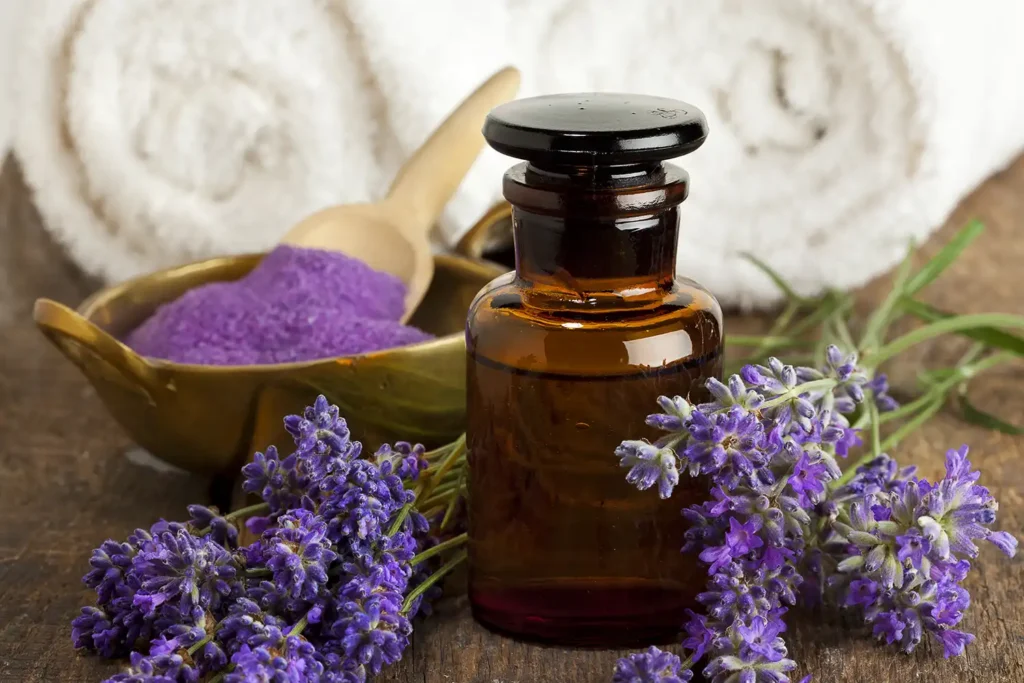
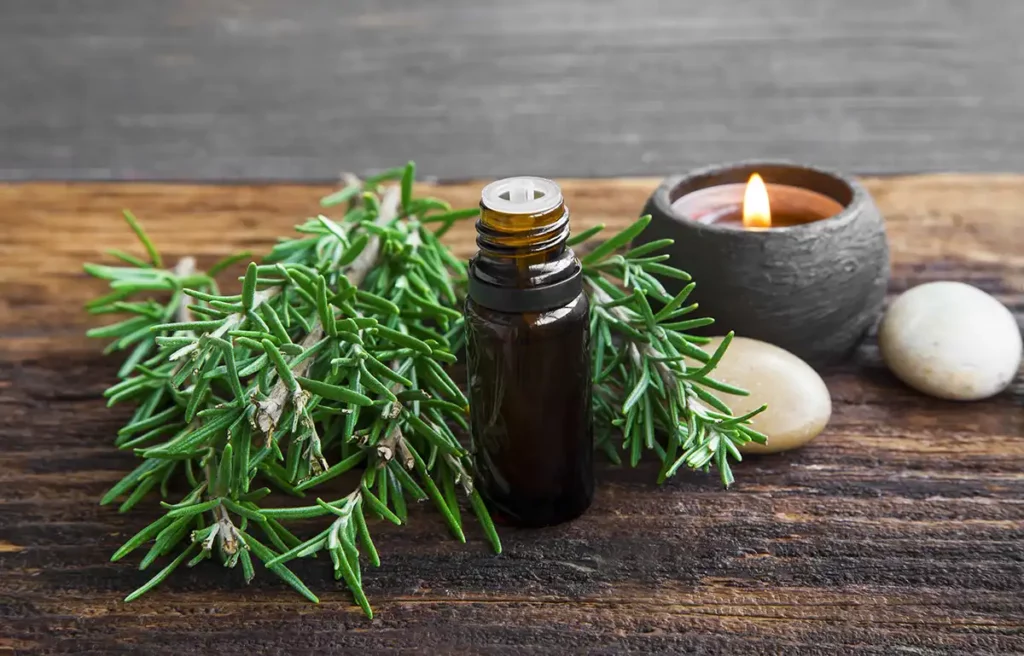
Incorporating Essential Oils into Your Daily Routine
Simple DIY Mood-Boosting Recipes
Here are a few simple DIY recipes to create a fresh or soothing ambience in your home.
- Mix a blend of Peppermint essential oil and Lemon essential oil in a small bottle. Before you go to bed, put a couple of drops down the sink plug hole. Add another couple of drops to a piece of kitchen towel and leave it on the draining board. When you come in for breakfast, you are met with a fresh and zingy aroma that also gives you an energy boost.
- Get a plastic plant sprayer and add a cup of alcohol. Add ten drops of Lime essential oil, eight drops of Basil essential oil, five drops of Eucalyptus essential oil and 15 drops of Grapefruit essential oil. You could also add some Lemon oil, as all citrus oils work well together. Mix to ensure the oils dissolve in the alcohol, then top up the bottle with water. This is a great uplifting scent to freshen up the toilet, garage, or any area that is shut for long periods and difficult to refresh. You’ll probably find that it will also boost your energy levels too.
- Using essential oils for energy is fine, but if you’re experiencing chronic exhaustion, it may be more beneficial to focus on supporting your adrenal glands for an energy boost. Basil essential oil, when used in small amounts, is considered to have a toning potential on your adrenal glands, which is another way to encourage increased energy. Essential oils work gently and subtly if you use them safely in small amounts. That way, you can get those good health benefits, boosting energy levels while using them in everyday life.
Creating Your Own Blends
When you open a bottle of oil, have a gentle waft under your nose rather than taking a big sniff. You’ll notice that some oils are much stronger than others. For example, Eucalyptus oil can easily overpower a blend, making it smell very clinical. The same applies to Peppermint oil and Tea Tree oil. However, if you have congested sinuses, the strength and fresh aroma of Eucalyptus oil will help you clear your head and fight fatigue.
Lemon essential oil goes well with all citrus oils. Adding a drop of Sweet Basil essential oil gives a delicious twist to the blend. Add a few drops of Sweet Orange and create a blend with a fresh scent that is naturally energising and provides a positive energy boost.
Don’t just choose your favourite smells and throw them into a blend; think about the function of the oils you have. For example, don’t combine the energy Juniper Berry brings with essential oils that will relax you because they often pull in opposite directions. Peppermint is cooling, whereas Ginger is warming, so they tend to sit poorly together. Also, it is better to use less powerful oil so that it doesn’t overpower the rest of the blend.
Finally, note the blends you create so you can recreate them again or tweak them.
Precautions and Safe Use
Always dilute essential oils properly before applying them on the skin, as they are highly concentrated and can cause irritations or allergic reactions. Carrier oils such as Coconut oil, Olive oil, or Jojoba oil can be used for dilution.
Essential oils should not be taken internally as they can be toxic when consumed in large amounts. They should be stored out of reach of children and pets for the same reason.
If you are sensitive to new products, performing a patch test before applying any essential oil to your skin is recommended to check for any adverse reactions.
Pregnant women, infants, and individuals with medical conditions should exercise extra caution and consult a healthcare professional before using essential oils. It is always wise to research the essential oil used and follow the recommended guidelines to ensure safe and beneficial use.
Beyond the Bottle: Additional Ways to Boost Mood
In addition to using essential oils, there are many other ways to boost mood and improve overall well-being.
One effective method is through regular exercise performance. Physical activity releases endorphins in the brain, known as “feel-good” hormones. This can lead to a boost in mood and a decrease in symptoms of anxiety and depression.
Another way to improve mood is through socialising and spending time with loved ones. Connecting with others and engaging in meaningful conversations can provide a sense of belonging and support, ultimately leading to a more positive state of mind.
Additionally, practising gratitude and mindfulness can also have a significant impact on mood. Reflecting on the good things in life and staying in the present can bring peace and happiness. Take time out to sit and comfortably inhale deeply. Consider holding your breath for a few seconds, and then let the breath out slowly. Repeat several times over. Breathwork is an excellent way to reduce stress, help those coping with high blood pressure, and alter brain wave activity. To promote sleep, do the same at bedtime, breathe deeply, and let the breath escape slowly.
Engaging in enjoyable activities like hobbies or volunteering can boost your mood and overall well-being.
Complementary Practices for Mental Wellbeing
Meditation and Mindfulness with Aromatherapy
Meditation and mindfulness practices involve focusing the mind and increasing awareness of the present moment. On the other hand, aromatherapy utilises aroma molecules, promoting relaxation and alleviating stress. When combined, these two techniques can enhance the overall meditation experience.
Aromatherapy can be incorporated into meditation by using oils to create a calming and inviting atmosphere. These scents help to relax the body and mind, making it easier to enter a meditative state. Certain oils, like Lavender, Chamomile, and Bergamot, have calming properties that help to reduce anxiety and promote peace.
Integrating Essential Oils into Yoga and Exercise Routines
Using Frankincense oil will help with relaxation and deep breathing exercises. On the other hand, oils like Peppermint and Eucalyptus can promote energy and invigoration, making them ideal for warm-up exercises. Oils such as Ginger, Black Pepper, and Lemongrass have natural analgesic properties that can reduce inflammation and release muscle tension.
Healthy Lifestyle Choices
Of course, we think that every essential oil is an amazing product to have. Remember that they are called complementary medicine because they complement the other aspects of your life.
The Role of Diet and Hydration
- Try to avoid eating meat at least twice a week. There are plenty of ways to get plant-based protein in your diet. Your gut and the planet will benefit from reducing your meat intake.
- Fish is an excellent source of nutrients, and Omega-3 is especially rich in oily fish. Tinned sardines, pilchards, and fresh fish should all appear on your weekly food list.
- Fruit and vegetables of all colours – don’t just eat beige-coloured food. The veggies with bright colours are all rich in antioxidants. As a simple experiment, write down every plant food that you consume in a week. Ideally, you should have at least 30 over the space of a week. How did you do?
- It can be easy to overindulge in carbohydrates, but they are important. Equally important are the legumes, nuts and seeds. These can be a powerhouse of nutrition.
- Always remember to drink water. Numerous cups of tea and coffee don’t count. Only water counts as water. Aim for at least 1 litre a day. Some people find it better when cold, so keep a large bottle in the fridge. If you like flavouring, squeeze in a lime or add a few slices of fresh ginger root.
Sleep Quality and The Benefits of Essential Oils
Getting a good night’s sleep is essential for our physical and mental health. However, many people need help falling asleep or staying asleep throughout the night. One natural way to improve sleep quality is by using essential oils. Lavender oil, for example, has a calming effect on the mind and body, making it easier to drift off to sleep. However, use a drop or two because too much can be stimulating.
Other oils like Chamomile, Bergamot, and Valerian have more sedative effects and can help regulate sleep patterns. It depends on your situation. Do you have trouble sleeping due to stress and worry, or is it due to muscle or joint pain?
Read more about The Power of Aromatherapy for Restful Sleep
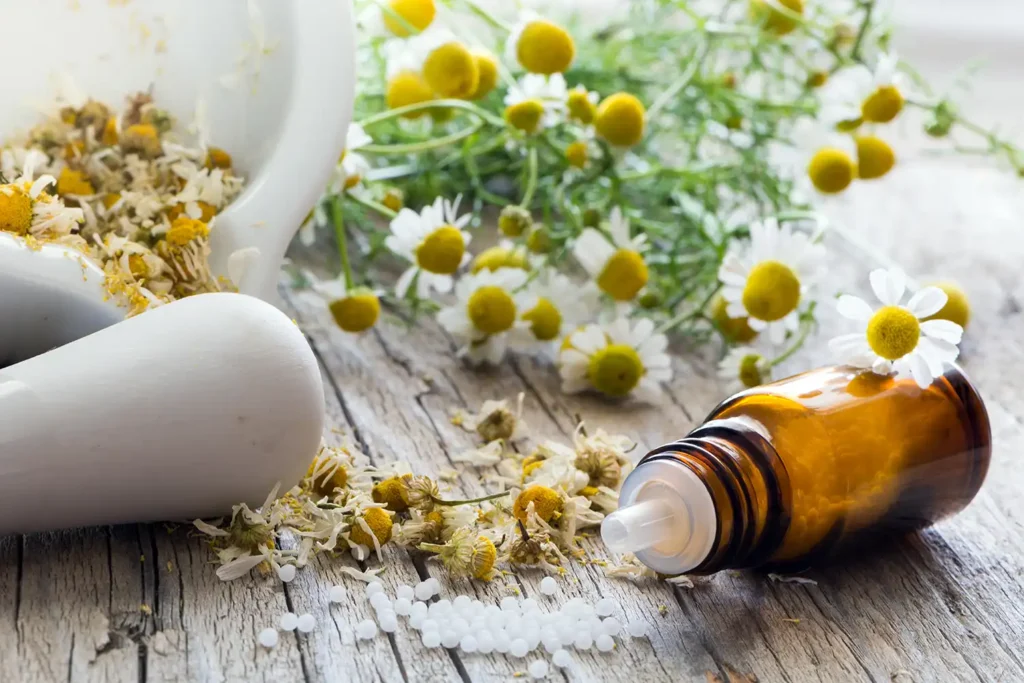
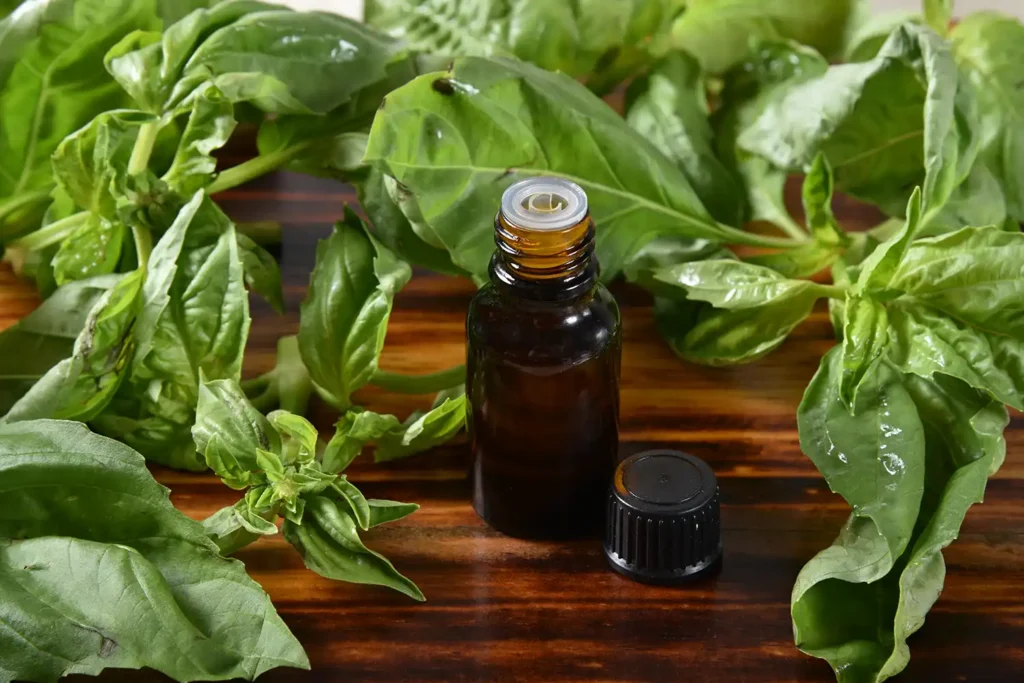
Real-World Success Stories of Mood Transformation
My friend Mike used to work in a cancer ward in a leading London hospital. He introduced a protocol for children coming in for radiotherapy or chemotherapy treatments, which would be painful. Before any treatment plan started, the child would be introduced to their nurse, who would be the main point of contact for the child and parents. This was to stop the child from feeling bewildered or lost when in the hospital.
The nurse would get to know the child and enjoy some play time in the ward so the child would become familiar with the environment. The parents were asked to bring in a favourite cuddly toy. A few drops of Geranium oil were rubbed into the soft toy. A small bottle was given to the parents, and they were asked to use very small amounts in their home at bedtime or special events like a day out or a visit to grandparents.
The idea was to get the child to associate warmth and love in their home with the calming aroma of the oil. When it was time for treatments in the hospital, the toy and familiar scent came with the child, reassuring them during their stay. The staff discovered they needed an oil with a unique and uncommon scent for the child. An oil like Spearmint is often found in sweets and toothpaste; the oil used for this purpose should have a distinct smell and be affordable. Geranium fitted the bill perfectly.
Final Thoughts
Essential oils have stood the test of time. Humans have relied on them to reduce stress and treat allergies throughout history. Their uplifting scent can give you a creative burst of energy, and the calming floral ones can relax and lull you to sleep. Always try to buy the best essential oils you can afford, as a small investment gives you such a big payback.


